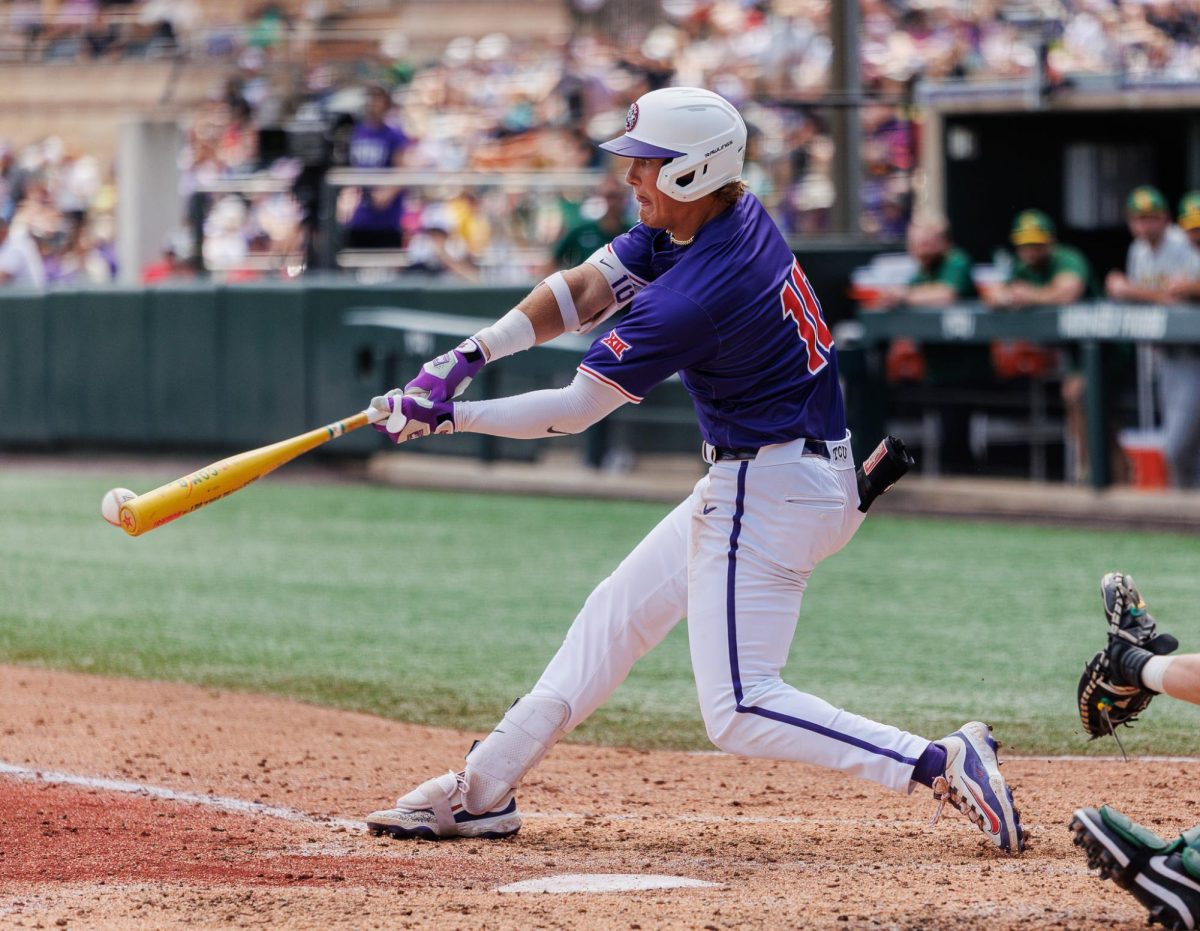Equestrian is one of the most unpredictable sports.
Unlike other sports that use rackets, bats, clubs or balls, equestrian uses horses that have a mind of their own. This is the challenge the TCU Women’s equestrian team faces at every practice and every meet.
Head Coach Logan Fiorentino said the TCU equestrian team has 33 horses and each is unique to a certain style of equestrian riding.
While the horses are trained and talented in their area of expertise, the experienced riders are going to be able to make any type of horse look good and ride well. Being able to adapt to the horse is what the sport is about.
Junior Courtney Motz said she never knew how the horse would react at any moment and she had to be prepared for each ride to be different.
The horses are trained in four areas of equestrian riding on both the Western team and the Hunt Seat team.
On the Western team there are two events, Horsemanship and Reining. In Horsemanship, the horse and rider perform a pattern in which different maneuvers and the horse’s different skills are exhibited. During Reining, the horse and rider performed patterns including spins and sliding stops.
On the Hunt Seat team there are two events: Equitation on the Flat, which requires the horse to be able to do specific movements, almost like dancing, in a certain pattern. And Equitation over Fences, where horses have to be able to jump around a full course including tight turns and tricky jump combinations.
Equestrian was brought to TCU in 2006. There are only 24 equestrian varsity teams across the country. TCU competes against 15 of those teams.
The team won the 2006-2007 Western National Championships their first season at TCU.
“The team was off to a fast start and we have seen the program get stronger and better ever since,” Fiorentino said.
During practice the women will be assigned to ride one horse and will switch which horse they ride each day, Fiorentino said. This helps the women get adapted to different riding styles of each horse.
When the team travels they do not bring their TCU horses with them, so being ready for any type of horse is important. The host team for any equestrian event provides the horses for the meet.
Motz said traveling to other schools is one of the sports biggest challenges because they only get four minutes before competition to get familiar with their horse for the event.
“What makes you a good rider is being able to adapt to any horse you are given, especially when it is just minutes before competition,” Fiorentino said.
One woman from each team will compete against each other on the same horse and the woman with the highest score wins the point for the team.
“A win means so much more when you are able to overcome a difficult horse and succeed,” Motz said.
Senior Haley Jacobi said she feels a bond with most horses she rides, both at TCU and at away meets.
“You can feel when the horses are tense and nervous or when they are completely willing and relaxed,” Jacobi said.
The horses were all donated to the equestrian program. Each horse competed in multiple shows before coming to TCU, Fiorentino said.
“What is really great about our program is that it gives these horses a second career and a second chance to compete,” Fiorentino said.
The horses stay to compete at TCU for a minimum of three years and then are donated to good homes to retire, Fiorentino said.
“As long as they’re happy, healthy and enjoying their time here, we will continue to compete with them,” Fiorentino said.
All 33 horses make home at Turning Point Ranch in Springtown. This facility is new for TCU equestrian this year. Each team member is assigned a horse to take care of throughout the semester.
The women make sure their horse is clean, healthy and presentable to compete. While the team is not there, the facility has caretakers who look over the horses, Fiorentino said.
This fall the team received eight new horses from donors.
The team has started their fall season strong by winning their first two meets. They beat Oklahoma State at their last away meet.
“That was a huge victory for us,” Fiorentino said. “Oklahoma State has one of the best Western teams in the country.”
The team has spent the majority of the season on the road and will wrap up their final meets at home in February.



